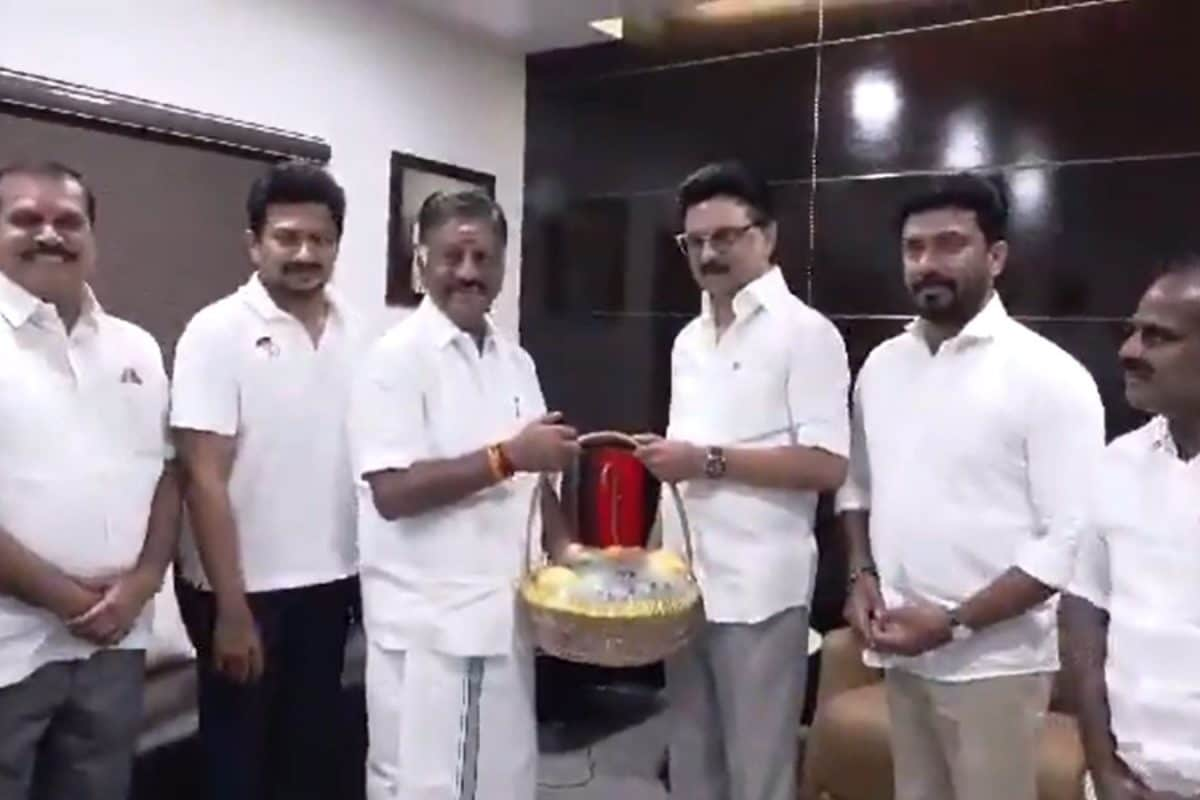

The political landscape of Tamil Nadu is heating up as parties gear up for the 2026 Legislative Assembly elections, which are expected to be held in April–May 2026. Amidst this, a recent meeting between former Chief Minister O. Panneerselvam (OPS) and current Chief Minister M.K. Stalin has sparked buzz about potential political realignments.
OPS, who recently announced his faction's exit from the BJP-led National Democratic Alliance (NDA), met with Stalin at the Chief Minister's residence. The meeting, officially described as a goodwill visit to inquire about Stalin's health after reports of a routine medical check-up, is seen as politically significant given the upcoming elections.
OPS had previously been a key leader in the All India Anna Dravida Munnetra Kazhagam (AIADMK) and an ally of the BJP within the NDA. However, a power struggle with Edappadi K. Palaniswami (EPS) led to a split in the AIADMK, and OPS formed his own faction. Following this split and after being sidelined by the BJP, OPS's options appeared limited. The recent meeting with Stalin, coupled with the exit from the NDA, suggests a potential shift in alliances.
While OPS's advisor, Panruti Ramachandran, has dismissed any immediate possibility of joining hands with the DMK, he emphasized that the only goal is to defeat the DMK in the 2026 Assembly elections. He stated that decisions regarding future alliances would be made closer to the elections. Despite this, the meeting with Stalin has fueled speculation about a possible alliance with the DMK-led bloc.
Several factors contribute to the significance of this meeting. First, OPS is a prominent figure from the Thevar community, a powerful social group in southern Tamil Nadu that has traditionally supported the AIADMK. Any shift in OPS's allegiance could impact the community's voting patterns. Second, the political dynamics in Tamil Nadu are complex, with the DMK and AIADMK being the dominant forces. However, the BJP is trying to make inroads in the state, and the entry of actor Vijay into politics with his party, Tamilaga Vettri Kazhagam (TVK), adds another layer of complexity. TVK's ideologies align with left-of-center values.
The DMK, under M.K. Stalin, is aiming for a seventh term in office and has set a target of winning 200 out of the 234 constituencies in the 2026 elections. To achieve this, the DMK is under pressure from its allies to be generous in seat-sharing. Parties like CPI(M) and VCK are seeking more seats in the DMK-led alliance. The AIADMK, on the other hand, has finalized its alliance with the BJP for the 2026 elections. However, there have been internal clashes within the NDA, particularly regarding the Chief Ministerial candidate.
Given these dynamics, OPS's decision to exit the NDA and his meeting with Stalin have opened up new possibilities for political alliances in Tamil Nadu. While it is too early to predict the outcome, these developments indicate a fluid political situation with potential for significant realignments before the 2026 elections.